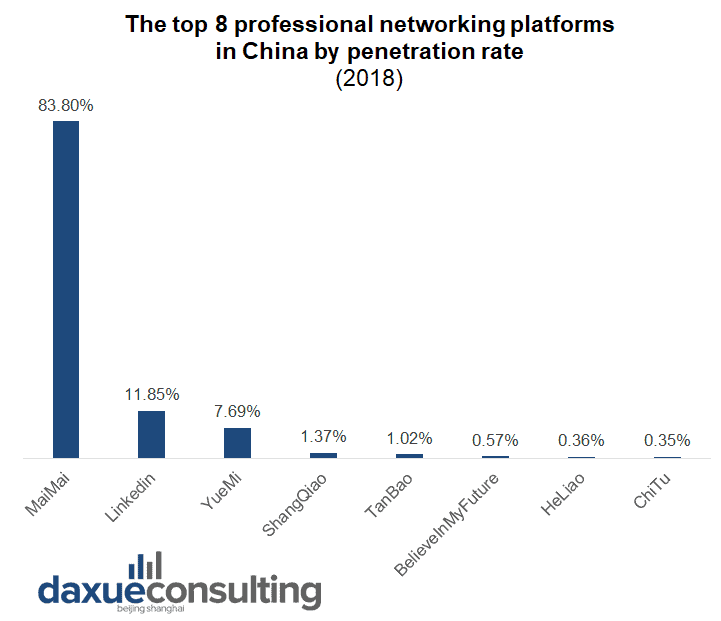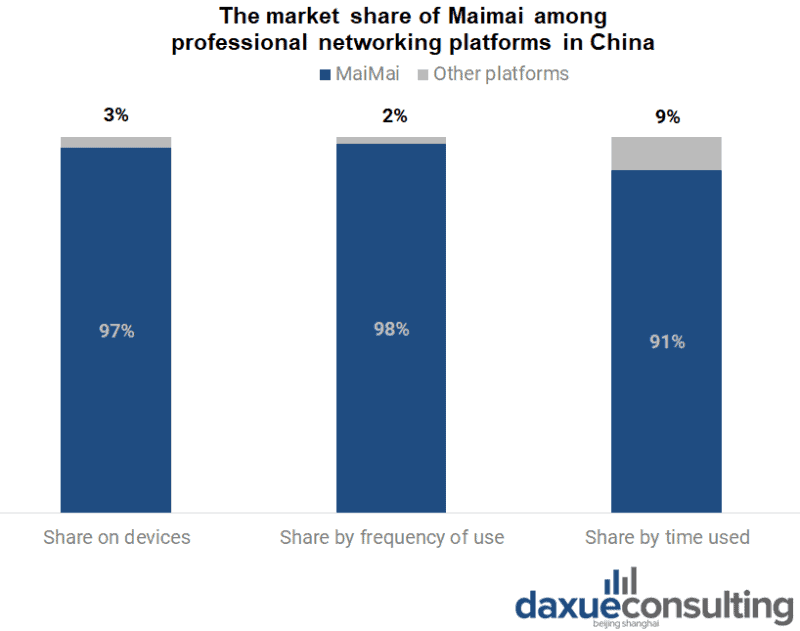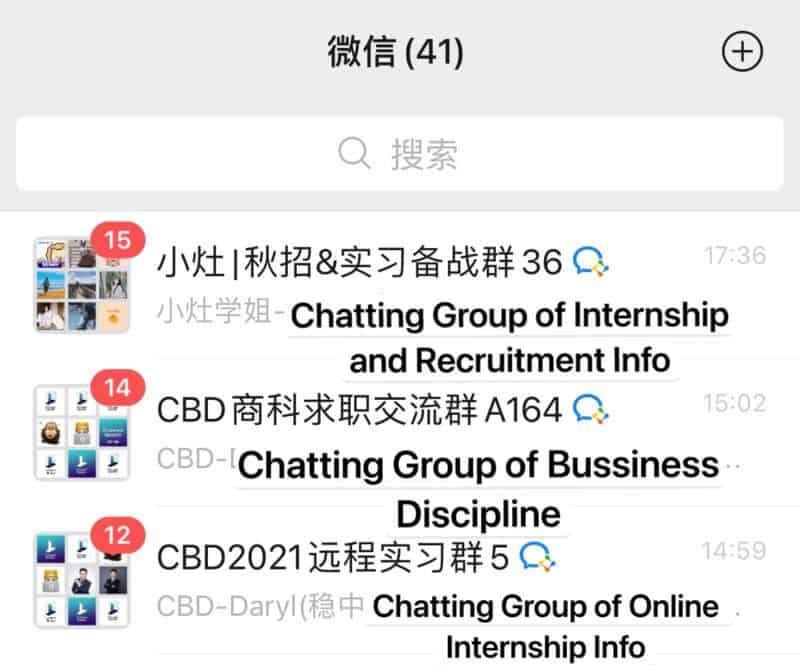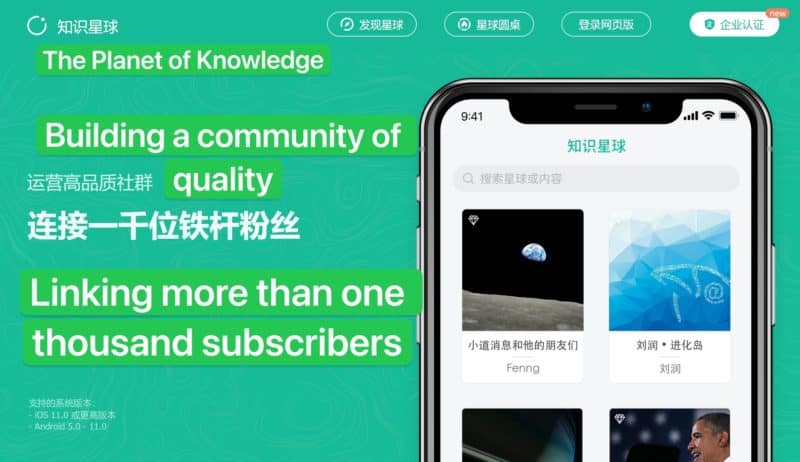On October 14th, 2021, LinkedIn announced it would shut down its service in mainland China. This globally leading professional networking platform entered China in 2014 and operated as one of the few popular western social sites in China for seven years. The absence the workplace networking giant left a lucrative room for alternatives to LinkedIn in China.
Nonetheless, LinkedIn’s departure also gives an important lesson for the alternative professional networking platforms in China — its successful business model appears to be incompatible in China. While filling the void left by LinkedIn, its alternatives are also trying to find their niche and adapt to an increasingly sensitive environment.
Why LinkedIn stopped its service in Mainland China?
As the most popular and influential professional networking site in the world, LinkedIn covers a wide range of functions: networking, recruitment and content sharing. However, since entering China in 2014, LinkedIn has not performed satisfyingly in China. According to the report on China’s workforce by Analysys, the user penetration rate of LinkedIn is far more lower than its domestic competitor, MaiMai, suggesting LinkedIn is far from the first choice for Chinese people to look for jobs or build a network.

Aside from its own poor performance, the main reason for LinkedIn’s departure from China stems from the country’s tightening cultural regulatory and censorship regime. As the lone American SNS operating in China, LinkedIn was censored in March, 2021 for failing to control unfavorable content on its site, which forced it to suspend the registration of new users for a month.

Tight restrictions from the government
Later, since the US IPO of Internet giant Didi, resulted in a huge amount of user information leaking to the U.S. government in June 2021, the Chinese government decided to tighten its oversight of Internet companies. LinkedIn’s content sharing function therefore sits under a great pressure and seems no longer compatible with the increasingly regulated cultural atmosphere in China.
In its farewell announcement, the VP of LinkedIn noted: “We’re also facing a significantly more challenging operating environment and greater compliance requirements in China”. Although the company plans to introduce a localized version of LinkedIn in China in the future, it will no longer cover ‘user-generated content publishing and interactive features’. Therefore, Chinese professionals will turn to the following alternatives to LinkedIn in China
Alternative 1: MaiMai (脉脉) for networking
While LinkedIn failed to acclimatize itself to the environment, the gap left by its withdrawal provides valuable opportunities for those similar yet without a content sharing function professional networking platforms in China, including its main competitor, MaiMai. According to the report on professional networking of collar workers in China by iResearch, MaiMai has a near monopoly on the network and recruitment needs of Chinese white collar workers, topping the list of workplace social software. The absence of LinkedIn creates a perfect time for MaiMai to attract new users.

In addition, the iResearch report points to the growing attention towards professional networking among white-collar workers in China. Ninety-three percent of those surveyed valued social networking at work, with 43% of them see it as “extremely important”. It reveals potential needs for better professional networking platforms that are waiting to be explored by LinkedIn’s replacements like MaiMai.
Focusing on “Guanxi”
However, after the withdrawal of LinkedIn, the development of MaiMai won’t necessarily be a smooth sailing. In fact, the common factor holding back LinkedIn and MaiMai roots in traditional networking habits in China. People tend to build social networks through relatives or friends in their lives, which is known as “Guanxi” (关系), rather than looking for alumni or developing new relationships on the Internet.
Even as MaiMai now has a large user base, research shows that many people do not engage in further communication after adding friends on this platform. Recruiters in China also rarely view LinkedIn, MaiMai or similar professional networking sites as the most important recruitment platform. To stand out as a workplace networking platform in China, MaiMai and other alternatives to LinkedIn must continue to contemplate on how to change the deeply ingrained “Guanxi” recruitment habits of Chinese.
Alternative 2: The Planet of Knowledge (知识星球) for content sharing
Even as tighter censorship forces LinkedIn to abandon its mission, we can still see the rise of some local content sharing sites in China. In addition to traditional social platforms such as Weibo and WeChat, niche knowledge sharing platform such as the Planet of Knowledge is rapidly gaining market share.
Weibo, China’s largest and most mature social networking platform, launched a “Weibo Q&A” function in 2016, similar to LinkedIn’s content feed. Users can pay professionals from all areas of life or Internet influencers to ask questions. In addition, people other than the questioner can also pay a small amount of money to read answers to the question. This feature not only allows creators to solve specific doubts for their followers, but also motivates them to produce more professional and valuable content.
At the same time, as a byproduct of “Guanxi”, Chinese people are also more inclined to less formal content channels, such as WeChat groups. People can pay or get invited to join a content creator’s group chat, where they can learn about the latest trends on many disciplines, like education, stocks, or real estate. This approach is particularly popular among China’s middle aged and elderly.

The limitations of these two ways of sharing content are obvious: because of their large user base, discussions on many sensitive topics are still limited. At the same time, the quality of knowledge sharing can be low since Weibo and WeChat include a mixed user base, which presents an opportunity for the development of niche content sharing platforms.
Free environment for content sharing
The Planet of Knowledge is a platform for content sharing which emerged in August 2016. Unlike Weibo and WeChat, its main function is to share knowledge and opinions within a small and professional community. Users can subscribe to bloggers in different fields for a subscription fee and then read their published opinions.

So far, censorship on the Planet of Knowledge has been relatively lax, providing a free environment for content sharing. In addition, as a dedicated knowledge sharing platform, many of the Planet of Knowledge functions make it easier for users to save, track and share ideas they find enlightening.
The number of Planet of Knowledge users reached twenty million in 2020. The rapid growth of this niche platform has shown us the potential of content sharing in China, and with the demise of LinkedIn’s content sharing function, there are also more opportunities for high-end knowledge sharing platforms such as the Planet of Knowledge. With a better compliance of censorship regulations and a better user experience, local content sharing sites have a chance to become the best alternative to LinkedIn in Chinese mainland.
Key Takeaways:
- Strict censorship and an increasingly sensitive cultural environment have added obstacles to the development of foreign social platforms in China.
- With an already loyal and large user base, MaiMai looks poised to become China’s “LinkedIn” in professional networking area.
- To further develop China’s professional network, platforms and users should all be aware of China’s “Guan Xi” culture.
- Even with strict censorship, the need for content and knowledge sharing still exists in China, spurring the development of platforms such as the Planet of Knowledge.





